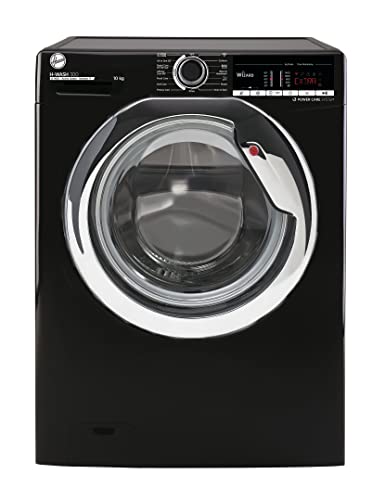What's The Most Important "Myths" Concerning 10kg Front Loader Could Be A Lie
Why Buy a 10kg Front Loader?
10kg washing machine sale -loader 10kg is ideal for large loads of laundry, with 13 wash programs that include handwash as well as plenty of space for large wash cycles. With its smart technology and advanced features, it's a perfect partner for your home laundry.
Front loaders generally take longer to wash, and aren't available in larger capacities and can often suffer from mildew and mould. However, they are much more efficient in terms of energy and water use than top loaders.
Energy
The main energy expense in a front loader of 10kg is electricity for heating water to operating temperatures, and for running the motor. These costs can be offset by lower energy consumption compared to top-loaders. This is due to less power being used during the spin cycle and agitation cycle, as well as using less water. Certain machines have low-water cycles that consume less water than the cotton cycle. This helps save water and energy.
In general, front-loading washers use less soap than top-loaders. The drum's tumbling also reduces foamy suds, and also reduces overflows, but without affecting the cleaning process. The door seals and the bellows of top-loaders can be more susceptible to wear. In addition, a top-loader's agitator's mechanical mechanism can cause considerable wear and abrasion to clothing fabrics, as it forces clothes against each other with paddles that constantly drop and drag them through the wash. This abrasion can be gauged by the amount of fabric that accumulates in a dryer's lint filter, since the majority of lint is made up of fragments of fibers that are ripped from clothing during drying and washing. Many top-loaders are designed to run at slower speeds, and could also include a "freshening cycle" to clean the mechanical gears or bellows regularly.
Water

Top-load washers require an agitator or impeller to force water and detergent through clothes, which creates mechanical wear and abrasion. Front-loaders however employ paddles to gently move clothes around the spinning drum while cleaning, thereby reducing wear. The rate of wear can be approximated by the amount of lint collected in dryer lint filters which consists of stray threads detached from clothes during drying and washing.
Because front-load machines require a lower level of water than top-loaders which means they are less prone to leakage. Front-loaders require a bellows, or seal to stop water from spraying through the open door. These systems aren't required to be maintained as often as top-loaders.
Front-loaders are more energy-efficient than top-loaders because they can utilize hot or cold water, and some do so without a heating source. This efficiency can lower operating costs for the same laundry load in places where energy, water, and detergents are expensive.
